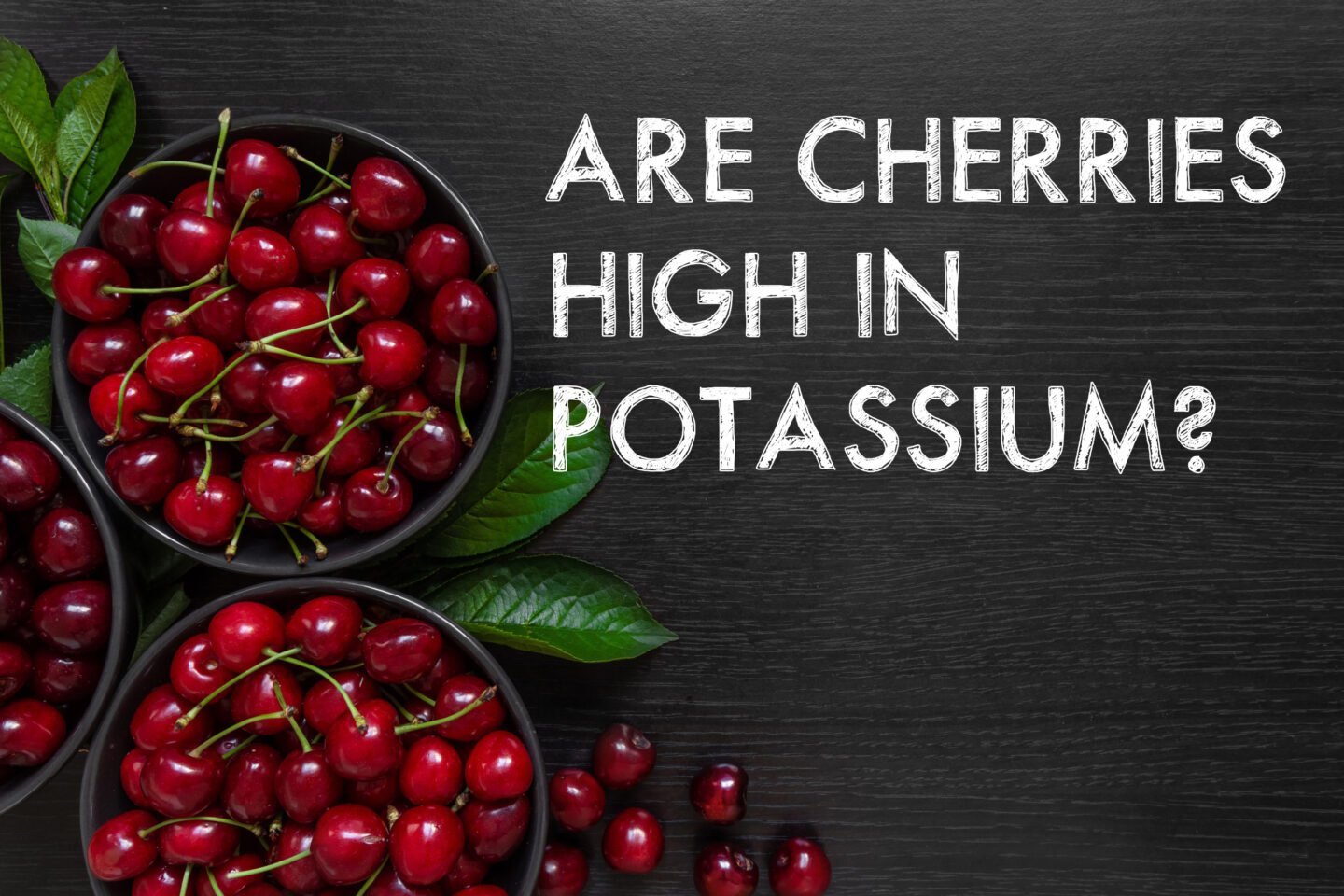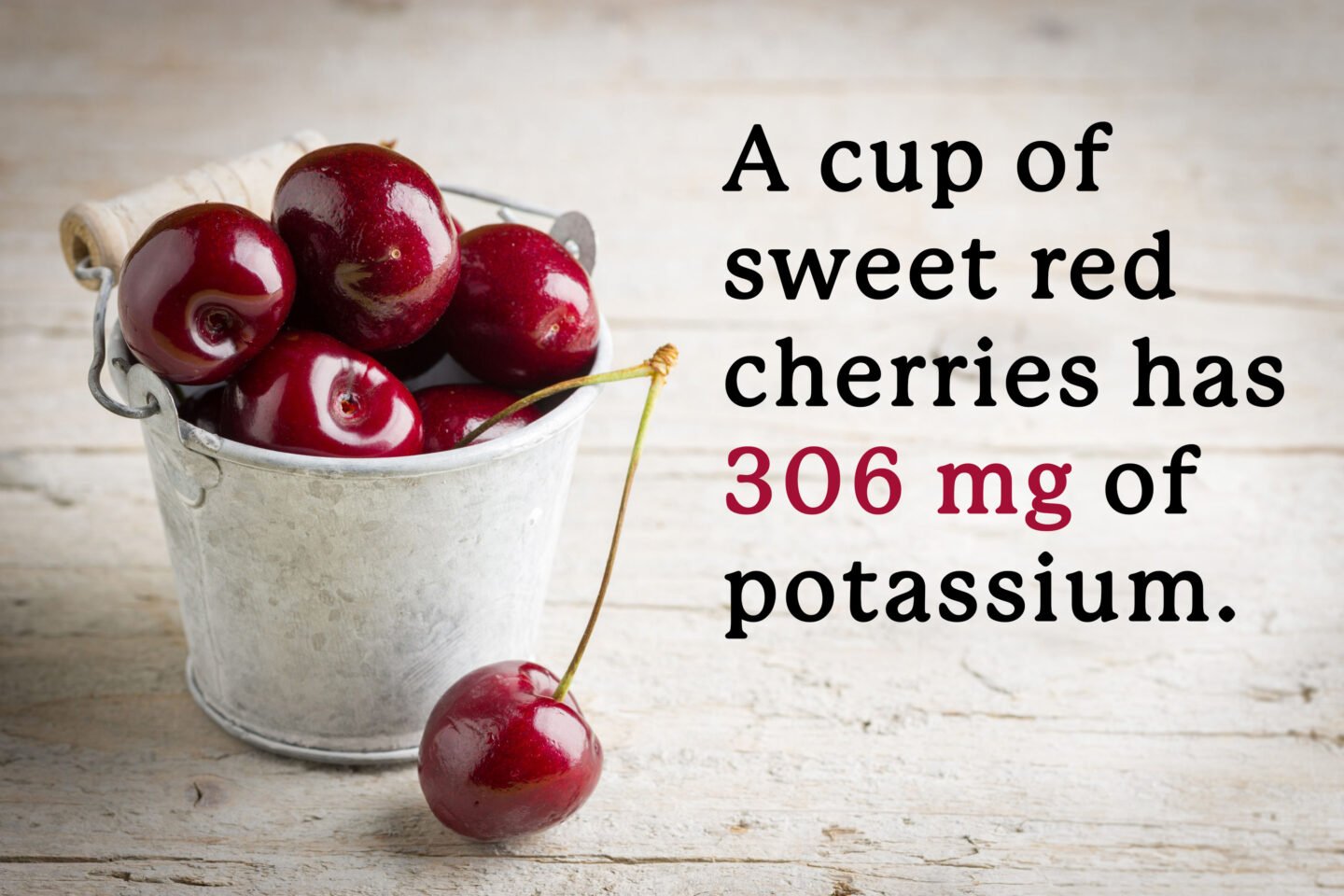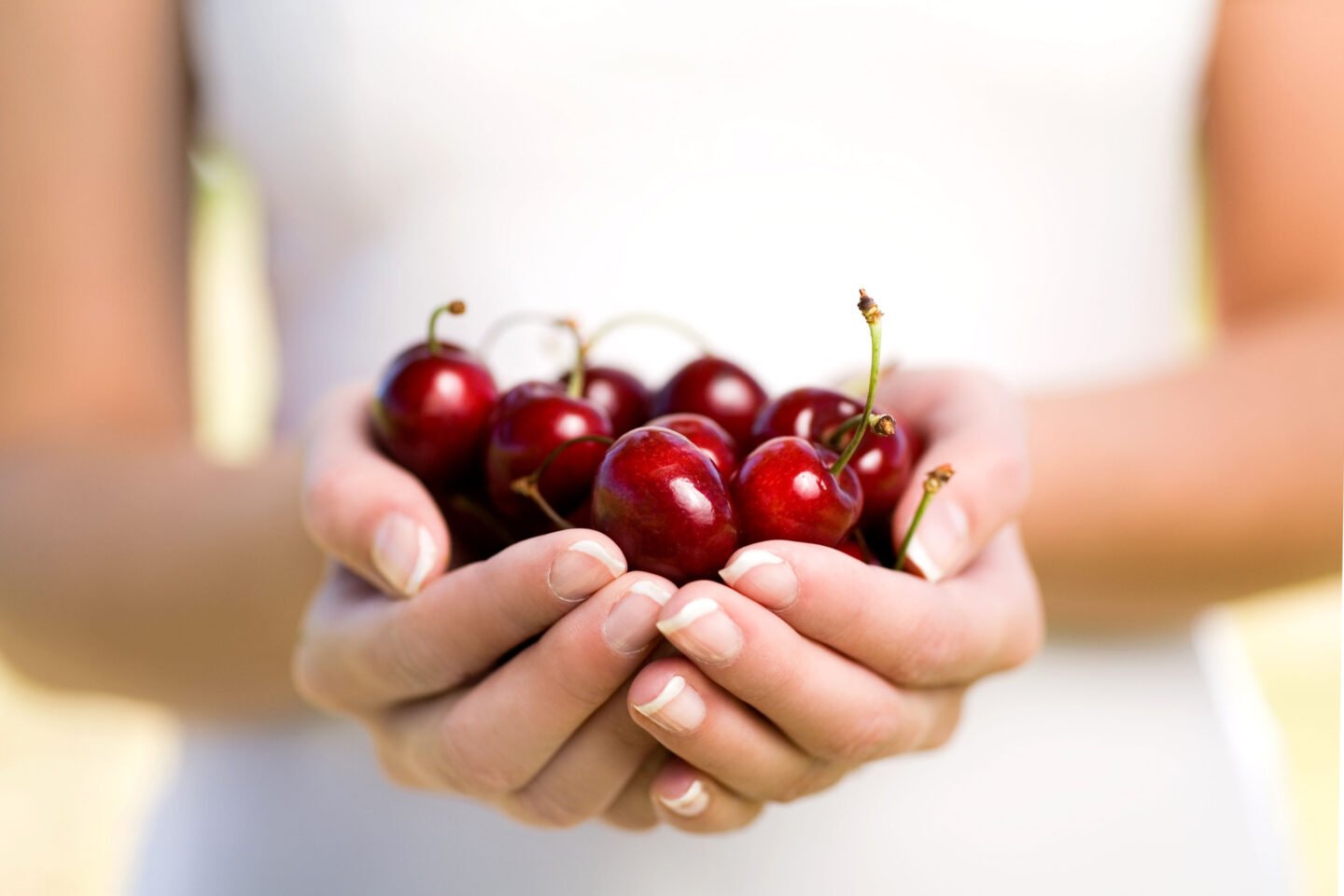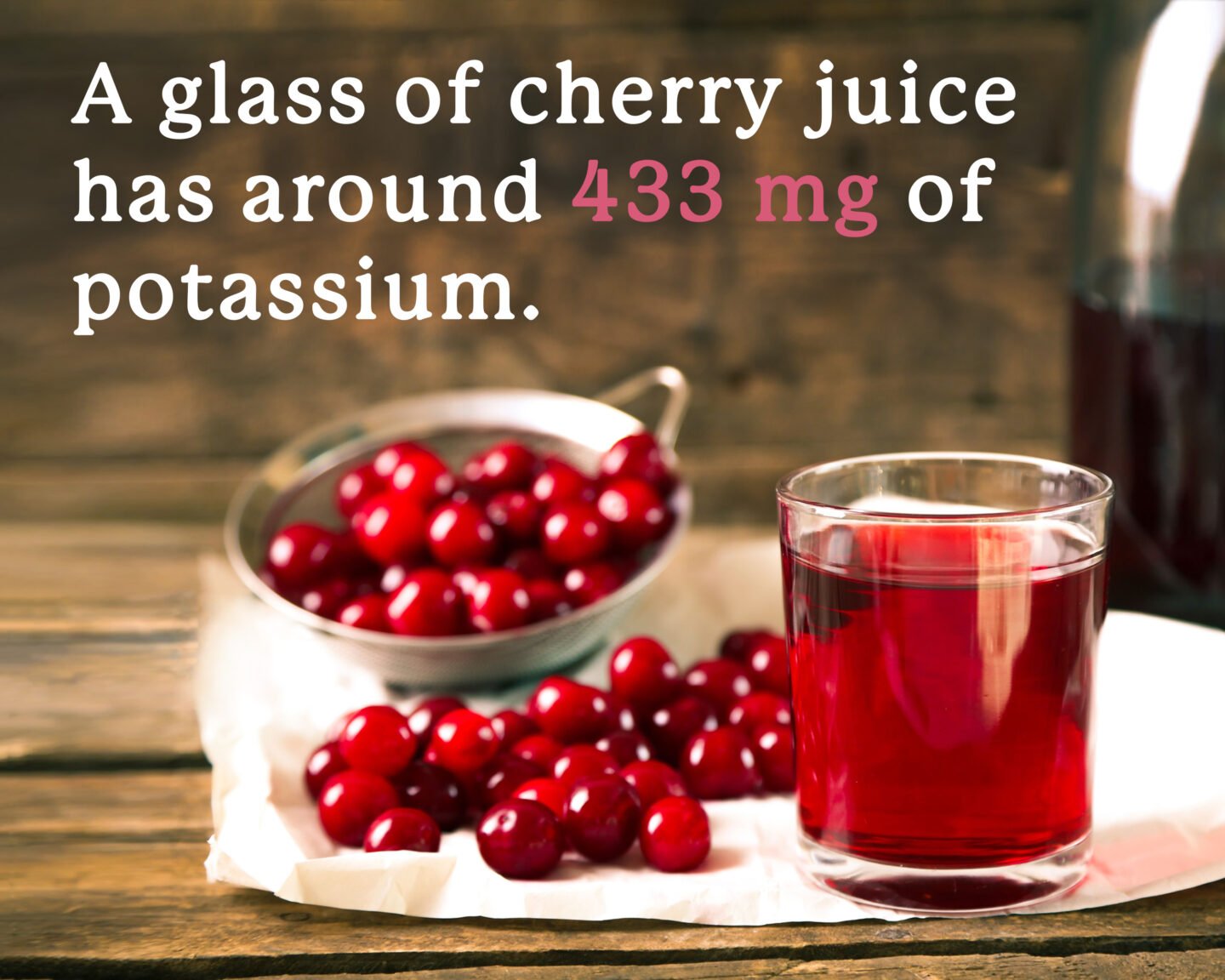Cherries are one of the most popular fruits globally, and it's easy to see why. They’re delicious, highly nutritious, and can be eaten on their own, in jams, or baked into pies, cookies, or cakes.

However, more and more people follow a diet aimed at increasing or decreasing their intake of certain nutrients, such as a low-potassium diet for people suffering from kidney disease. These people must know the potassium contents of different foods and ensure they stay within the daily intake recommended by their doctor by limiting their intake of high-potassium foods.
This isn't always easy to do, especially when it comes to delicious treats like cherries.
Table of Contents
Are Cherries High or Low in Potassium?
Cherries are high in potassium, so those on a low-potassium diet should limit their consumption.
However, cherries are very nutritious, so as long as you stay within the potassium intake recommended by your doctor, they're a great addition to your diet.
How Much Potassium Is in Cherries?
A one-cup serving of sweet cherries contains 306 mg, well over the 200 mg per serving threshold for a food to be considered low-potassium. The same-sized serving of sour cherries contains 268 mg.

Are Cherries Healthy?
Most of the calories in cherries come from carbohydrates, including sugar and fiber. Fiber supports a healthy digestive system by feeding good gut bacteria and keeping you regular. It also helps soak up excess stomach acid, alleviating the symptoms of acid reflux and GERD.
Although cherries are high in sugar, they don’t raise your blood sugar levels if eaten in moderation.
Cherries are a great source of vitamin C, which is crucial for your cells' growth, development, and repair. It also supports your immune system, especially during the colder months.
Vitamin C also improves iron absorption, keeping your blood healthy and preventing anemia.
Cherries are loaded with antioxidants and anti-inflammatory compounds; however, the amount varies with variety.
Antioxidants help flush out free radicals, reducing oxidative stress and cellular damage. They also reduce inflammation, potentially reducing your risk of diabetes and some cancers.

Some studies claim that eating cherries and drinking tart cherry juice can help you recover after exercising. The potassium, vitamin C, and magnesium in cherries replenish electrolyte levels and reduce athletes' muscle soreness.
Can You Get Too Much Potassium from Cherries?
Although they're high in potassium, it would be difficult to get too much from eating cherries alone. However, those on a low-potassium diet should ensure they stay within the daily limit set by their doctor and avoid eating cherries if it could make them go above.
Are Canned Cherries High in Potassium?
A half-cup serving of canned cherries contains 183 mg of potassium, just under the 200 mg per serving threshold for low-potassium foods.
However, most of the calories in canned cherries come from sugar, which may raise your blood sugar levels and increase your risk of type 2 diabetes.
Is Cherry Juice High in Potassium?

A glass of cherry juice contains around 433 mg of potassium, so most people on a low-potassium diet should avoid or dilute it.
Conclusion
Cherries are high in potassium, so people with kidney issues and potassium sensitivity should limit their intake.
For those seeking to increase their potassium intake, cherries are a delicious, nutritious way to achieve that dietary goal.
Don't know which foods are high in potassium? Read our article, 15 Best Food Sources of Potassium. We also have a guide to this important mineral: Potassium 101: All You Need To Know About Potassium.
